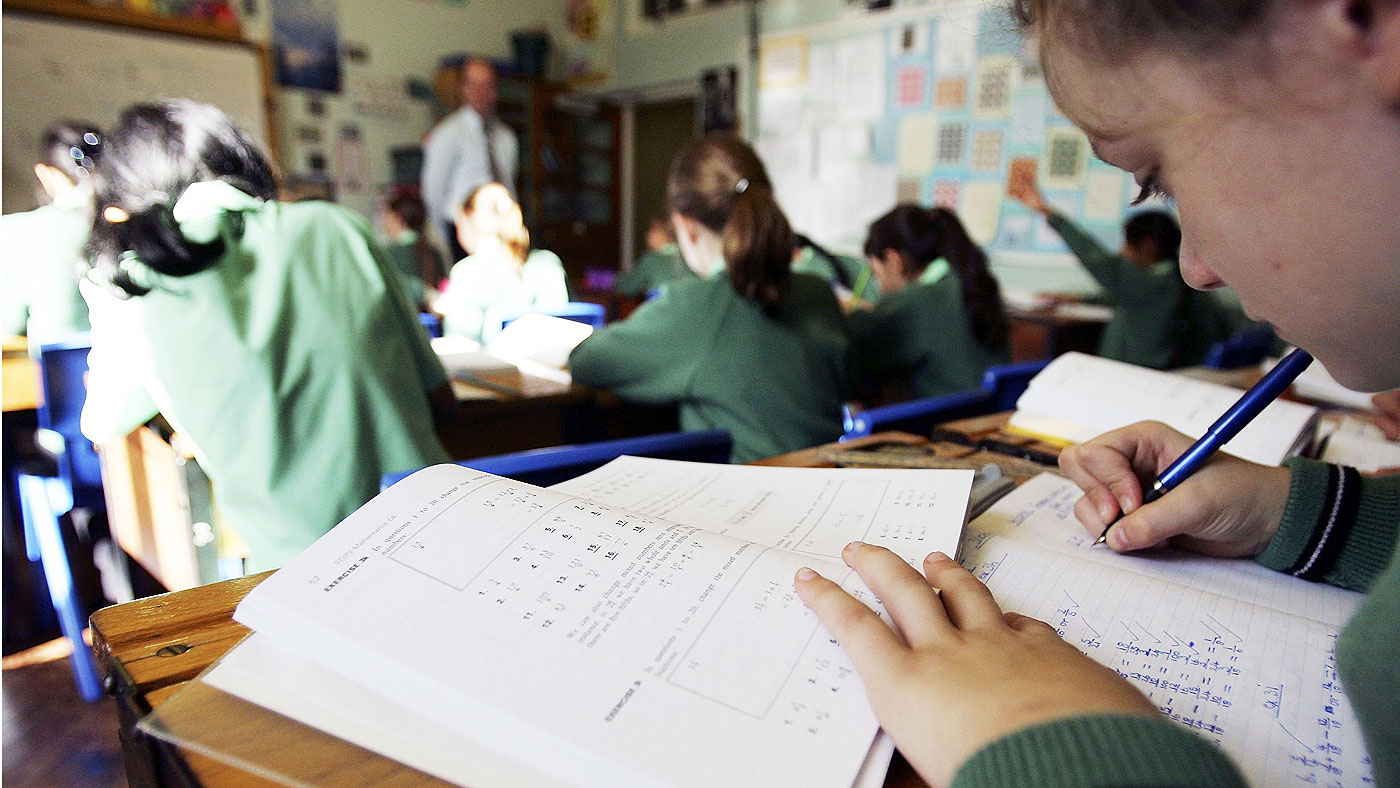Should isolation in schools be banned?
The practice of secluding pupils has dramatically increased in recent years but has received sustained criticism

A free daily email with the biggest news stories of the day – and the best features from TheWeek.com
You are now subscribed
Your newsletter sign-up was successful
The case of a young girl who attempted suicide after spending months in an isolation booth at school has reopened the debate on the practice of segregating children in education.
In a letter to the BBC’s Victoria Derbyshire programme, the 16-year-old described how she had spent every school day from mid-January to March this year kept apart from other pupils in an isolation suite.
“The room has six booths with a small workspace and sides so you cannot see other people. You have to sit in silence and be escorted to the toilet which is embarrassing,” she said.
The Week
Escape your echo chamber. Get the facts behind the news, plus analysis from multiple perspectives.

Sign up for The Week's Free Newsletters
From our morning news briefing to a weekly Good News Newsletter, get the best of The Week delivered directly to your inbox.
From our morning news briefing to a weekly Good News Newsletter, get the best of The Week delivered directly to your inbox.
“I decided I’d rather die than be in isolation because of the mood it left me in. I felt alone and trapped at school for such a long time that I felt as though it would be best, as no one seemed to care anyway.”
Her mother estimated to the programme that her daughter was placed in an isolation booth at her secondary school more than 240 times in total.
The Children’s Commissioner for England, Anne Longfield, told the BBC that school isolation can be “distressing and degrading” and she has concerns it is being used “as a gateway to excluding and off-rolling”, a practice in which pupils are informally excluded and removed from a school's register.
But how widespread is school isolation and should it be banned?
A free daily email with the biggest news stories of the day – and the best features from TheWeek.com
How widespread is the practice?
Isolation rooms, or internal inclusion units, are facilities within schools where pupils can be sent if it is thought they need to be removed from a classroom as a result of disruptive behaviour. Often they feature booth-like barriers to stop children from interacting with others.
Government guidance in England states that disruptive students can be placed in isolation “for a limited period” and that “schools should ensure that pupils are kept in seclusion or isolation no longer than is necessary and that their time spent there is used as constructively as possible”.
However, isolation is more of an informal disciplinary procedure than exclusion, and remains largely unregulated.
According to a BBC investigation last year, more than 200 pupils spent at least five consecutive days in isolation booths in schools in England in 2018. Alongside this, more than 5,000 children with special educational needs also attended isolation rooms at some stage.
Should it be banned?
School behaviour expert Tom Bennett believes isolation rooms can be effective in tackling disruption in classrooms and preventing fixed-term exclusions.
"When you’re a lone adult with a class of 25 pupils, it only takes two people to really persistently wilfully misbehave for that lesson to be completely detonated,” he told the BBC in November.
Indeed it is “perfectly sensible to remove some students from the mainstream classroom environment – the students who cannot uphold behaviour expectations – for two simple reasons”, Caroline Barlow, head of Heathfield Community College in East Sussex, told TES in the same month.
“Firstly, so that the students themselves experience consequences for their actions, but also so that the school continues to function successfully.”
But campaigners such as those behind the Ban the Booths petition argue that isolation zones are disproportionate, unnecessary and a breach of the UN charter on the rights of the child.
Paul Dix, who helped found the campaign, says the problem comes when schools use isolation as the first form of punishment. “It is a long way away from last resort: children isolated for the smallest infraction – wrong socks, rolling eyes, tutting or sucking a mint”, he says.
“They are caught in a no-man’s-land between a silent boothed existence and exclusion. These are the children who the cuts are hitting hardest.”
The point of isolation shouldn’t be to make the experience “so mind-numbingly tedious or so long that the child is bored into behaving better (incredibly unlikely) and it is a concern of mine that this is an explicit aim in some”, Jarlath O’Brien, author of Better Behaviour - a guide for teachers, told TES.
In fact, “it should not be an end in itself”, O’Brien says. “If we aren’t reviewing its effectiveness, if the same children are appearing in there time and time again, then it is perfectly legitimate to ask why we’re persisting with it as a behaviour improvement strategy.”
Last March, delegates at the National Education Union conference in Brighton voted unanimously to oppose “the move towards ever more punitive behaviour policies in schools”, saying it was feeding a mental health crisis for children.
The motion read: “The increasing use of detention, isolation and exclusion, often talked of as being ‘zero-tolerance’ approaches, usually mean ignoring the varied difficulties children have, in favour of punishment. We believe that, above all else, children need support, respect and love.”